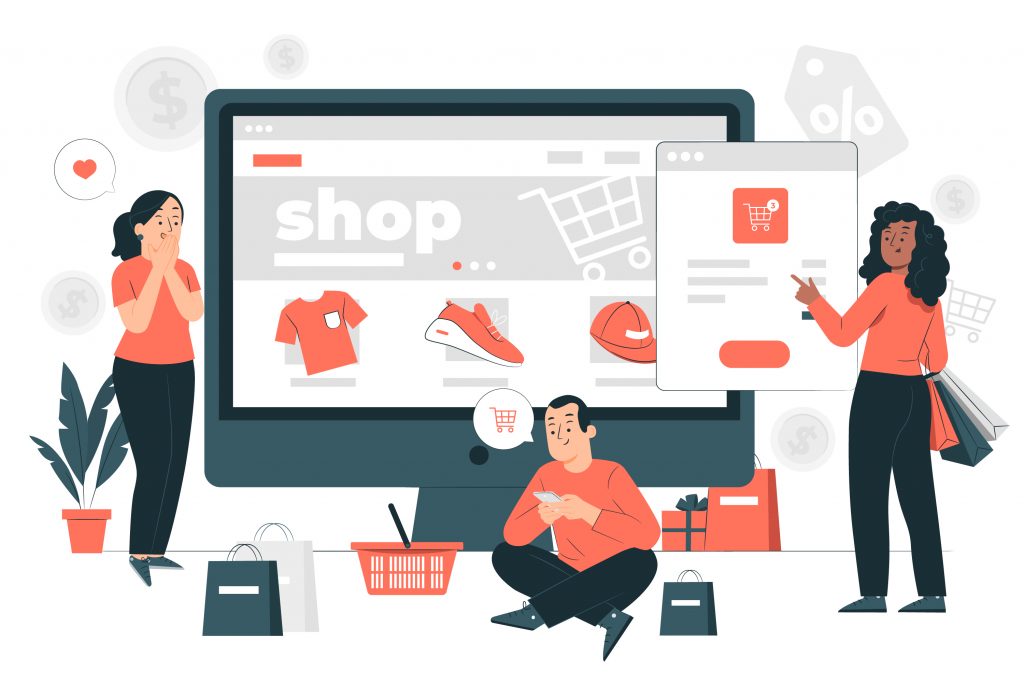E-commerce market is thriving at an exponential speed, and it shows no signs of slowing down. This has also increased fierce competition in the digital world as every brand strives to stay ahead of its competitors and engage with prospective customers. Businesses that understand their customers’ requirements are more likely to succeed.
The customer data play a crucial role in helping organizations decode customers’ needs and deliver enhanced customer experience. However, managing customer data is one of the biggest challenges e-commerce businesses face.
If you are looking to efficiently manage your customer data, you must rely on a powerful customer data platform (CDP) that helps you aggregate customer information into a central repository, allowing you to easily analyze and manage data.
What is a CDP?
Customer data platforms is a tool that allows enterprises to aggregate customer data from different sources and store it in the central repository. It uses personally identifiable information to build accurate and unified customer profiles accessible to all team members in your business ecosystem.
This customer data include all types of data, such as basic data, behavioral data, interaction data, demographic data, browsing history, product usage data, product review data and so on.
This data act as a cornerstone for product sales and marketing, allowing enterprises to deliver a customized shopping experience, and thus improving brand-customer relationship.
How CDP Can Benefit Your E-commerce Business?
Although CDP helps in capturing, cleansing and unifying customer data, the platform’s talents don’t end there. From building customer loyalty and trust, to increasing customer revenue, the business benefits of CDP are many. Here are 5 ways a customer data platform can benefit your business.
#1 Have a 360-degree view of the customer
A CDP works as a single data hub for all your customer data. When customers interact with campaigns on email, social media and website, these channels gather all customer information in one place.
CDP process this information into customer profiles to create asingle customer view. This provides marketers with a unified view of the customer attributes, such as customer information, purchase history, shopping behavior and interest.
Since businesses have more than one customer touchpoints to reach prospects, it is important to have a an efficient aggregation platform in place to prevent getting overwhelmed with the data management.
Having a unified and clear view, organizations can understand their customer better, make sense of the information and use it in every possible way.
#2 Deliver personalized shopping experiences
Customers today expect personalized digital experiences. With more customer data you have more opportunities to launch personalized campaigns for your customer. In fact, according to a research conducted by Epsilon, 80%of shoppers are willing to buy from a retailer that offers personalized experiences. Yet, many retailers fail to define their personalization strategy because of lack of the sorted and appropriate customer data.
With CDP, brands can identify which experiences will be the most personal and relevant. CDP enables them to engage with customers on any channel and create omnichannel experiences that resonate with them.
That is because you have gathered and understood data to fine-tune your strategies. Retailers can also identify what customers are likely to convert, and exclude uninterested customers, saving time and resources.
#3 Increase customer satisfaction
According to a study, it has been found out that over 65% of users tend to leave websites because they are not treated well or happy with the service being offered. Customers wish to feel heard and understood. If you successfully manage to answer all customer queries, they are more likely to purchase from you as well as build trust and turn them into loyal customers.
CDP makes this possible by allowing you to coordinate and synchronize communication on multiple channels, such as email, phone and live chat. Customer service teams can integrate CDP with their communication software, so they can view customer recent interactions.
This helps customer support executives to quickly understand customer issues and try to resolve them as quickly as possible without having to repeat themselves.
#4 Improve operational efficiency
Previously, using different tools and solutions to manage and utilize customer data consumed many resources. Further more, team members used manual methods to store and organize data. This resulted in redundant and faulty entries. Since customer data is crucial to your company’s success, failing to manage them appropriately can hamper your productivity and sales.
Using CDP, teams can store and access data from a single platform, which reduces data gaps between different departments and avoid redundancies that occur with data silos.
Often CDPs are equipped with powerful automation capabilities that activate data through artificial intelligence. For instance, a CDP may learn from the user’s buying history and anticipate how and when they will make their next purchase.
#5 Boost revenue
Collecting and unifying customer data is half the story. You must know how to take action on your customer data to boost your bottom line. CDPs enable retailers to use the data more thoughtfully.
By having single customer views, brands can create a more personalized experience, increase customer retention and build brand loyalty – which all leads to higher conversion rates and more revenue.
Additionally, successful marketing campaigns require engaging with customers at multiple touchpoints. CDPs can connect fragmented customers’ journey, allowing them to complete the purchase in a seamless way.
The Bottom Line
Customers today are aware that there is tremendous competition to win their attention, and hence, they expect more personalized experience from the organizations.
For a business to succeed in today’s competitive e-commerce world, they must embrace a CDP that allows them to capture customer data and use it to offer personalized and omnichannel experiences.
Velox Softech can help you implement an advanced customer data platform to remove data silos and consolidate real-time data from all offline and online channels to create a single trusted customer view. Know that every interaction with your customer is an opportunity to boost sales, but only if you have the right data and know how to use it.



